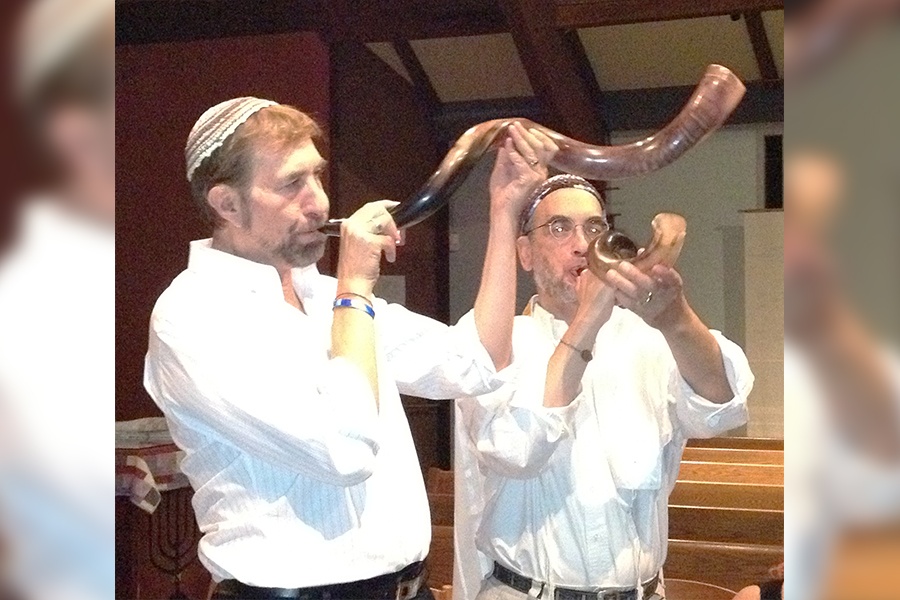
Members of several local faith communities connect in workshop
An interfaith workshop titled “Opening Up Our Hearts” was held on Saturday, Sept.16 at Congregation Bet Haverim, inviting community members to explore the concept of forgiveness on an individual and interpersonal level. While hosted by Congregation Bet Haverim, the workshop was facilitated by Bread of Life, a nonprofit educational organization for the expansion of personal growth and spirituality. The event was attended by members of the local Jewish, Muslim, Christian and non-faith communities.
The workshop was not only intended to be a time of reflection for those participating in the Jewish high holidays, but also to serve as an opportunity for dialogue between faith communities during a time of intense political polarization and local tension. Rabbi Greg Wolfe of Congregation Bet Haverim hoped that attendees would gain a better understanding of the dynamics of perception, behavioral reactions and, ultimately, forgiveness.
“With some of the events over the summer, it felt like maybe this would be a good time to sort of bring this dialogue process — to learn to talk to one another,” Wolfe said.
Wolfe had predicted that approximately 30 people would attend the event. Within the first 10 minutes of the workshop, however, it became apparent that this number had been underestimated, as upwards of 50 community members filled the room. Extra tables and chairs were required to accommodate all the participants. As people entered the venue, they were greeted and dispersed so that each table hosted a variety of faith backgrounds.
In preparation for the topic of forgiveness, facilitators from Bread of Life launched the event with a discussion regarding perception and defended reactions. Facilitators were then able to establish a small circle of trust and openness within the workshop using psychological concepts and thought-provoking questions.
Jean Holsen, the director of dialogue at Bread of Life, urged workshop participants to show respect for one another during small group discussion, stating that “every person is of sacred worth and value.”
Keeping the advice of the facilitators in mind, the small groups gradually shared their personal journeys within their own faiths (or lack of faith) and how their spirituality influenced their values and outlook on life. As more stories were shared, a microcosm of community trust began to build. Participants acknowledged the similarities and differences between their faith-based values with a high degree of reverence.
The first portion of the workshop ended and a multi-faith prayer blessed the vegetarian potluck-style meal. Participants roamed freely, socializing with new friends and indulging in a variety of cultural foods.
Mealtime transitioned into the final discussion concerning forgiveness. With a level of familiarity and trust already established, participants expressed their more personal points of tension and wariness. Although they showed compromise and empathy, it was apparent to outsiders of the local faith communities that there remained considerable unease to be dealt with.
The workshop concluded with participants describing their greatest points of enlightenment during the event. The older participants helped demonstrate how a younger generation may seek deference and cooperation between and within faith communities, even at times when tension is high.
David Aladjem, a member of Congregation Bet Haverim, reflected on how the idea of interfaith may coexist in a community and in one’s own life. Aladjem, who identifies as Jewish, was raised by a mother who practiced Hinduism and a father who practiced Judaism.
“Faith-based traditions are different paths that lead to the same place,” Aladjem said during the workshop.
Rabbi Wolfe wrapped up the event with an invitation to continue reflecting on forgiveness and the possibility of similar interfaith events occurring in the future.
Written by: Eliana Sisneros — city@theaggie.org



